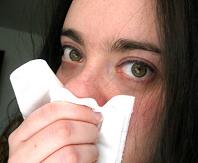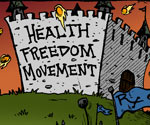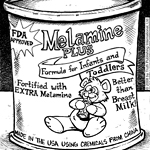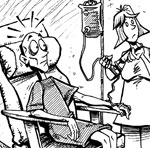Vitamin C for Colds Really Works — It Just Isn't a Total Cure
| Share on Facebook | Share on Twitter | Share on Google+ |
There is no more frequently used natural remedy all over the world than vitamin C for colds and flu. Popping a pill of vitamin C really does activate the immune system in ways that help your body fight off a rhinovirus infection. This is especially true if you catch that rhinovirus when you are doing strenuous physical activity or when you are exposed to unusually cold air.
But for vitamin C to work, it's best for you to take a big dose of vitamin C at the very sign of infection. Taking vitamin C later does not work as well, but it still helps make the duration of your symptoms shorter.
How Vitamin C Helps Treat Colds
There are no fewer than 21 scientific studies that have found that taking vitamin C helps you get over a cold. A reviewer writing for Cochrane's Reviews found that taking any amount of vitamin C over the RDI of 60 mg a day for adults shortened the duration of a cold by an average of 2.1 days. The more vitamin C you take, the more benefit you get, up to about 2,000 mg a day.
Why not More than 2,000 mg a Day?
The problem with taking more than 2,000 mg a day is that your body simply cannot absorb it. Mega-doses of vitamin C will have an effect on your digestive tract; you will need to deal with burps, acid stomach, and diarrhea.
Even when you take 2,000 mg a day, your body can only absorb about 400 mg at a time. You need to take an extended-release formulation of the vitamin or to take several smaller doses to add up to 2,000 mg a day, during the first few days of your cold.
Vitamin C is famous as an antioxidant, but in fighting colds, vitamin C acts as a pro-oxidant. The extra vitamin actually adds to the processes of inflammation rather than stopping them. The sooner your body generates enough inflammation in your nose to keep the virus from getting into your throat and lungs, the better. And if you already have a sore throat, vitamin C stimulates your body to produce the phlegm that isolates virus and stops it from infecting the rest of your body.
Feed a Cold, Starve a Fever?

People who use vitamin to fight a cold need to disregard the old adage to "feed a cold and starve a fever." That is because vitamin C is most effective in an alkaline environment. Sugary sweet foods and meat generate acidic mucus, and the vitamin C is not as effective in helping your immune system fight the cold.
Does Vitamin C Prevent a Cold?
The earlier you take vitamin C, the sooner you will get over your cold. But there are only special situations in which taking vitamin C will stop the cold before it ever starts. The drain on the immune system caused by cold weather or heavy exercise, or both, is counteracted by vitamin C. But if you are taking it easy indoors, vitamin C isn't going to do anything to stop a particularly aggressive colds virus.
Which Is Better, Orange Juice or Vitamin C?
Probably even more common than the practice of taking vitamin c for a cold is the practice of drinking orange juice in the early stages of a cold. There are two reasons it is usually better to take supplemental vitamin C than it is to drink more juice.
One reason is that orange juice really isn't a particularly good source of vitamin C. Many fruits and berries are better supplies of C. The other reason is that despite the fact the sugars in orange juice help generate an acidic environment in your mucus, and the relatively tiny amount of vitamin C you get by drinking juice is largely canceled out by the acidity in your phlegm.
What About Citrus Bioflavonoids?
The natural plant chemicals known as bioflavonoids are very important when you are using vitamin C as antioxidant. They help recharge vitamin C, and vitamin E, to maintain their antioxidant potency. When you are using vitamin C as a pro-oxidant to fight a cold, however, you really don't need the bioflavonoids provided by citrus or acerola. You need vitamin C "straight," taking it with lots of water, and you need it at the very sign of symptoms. Keep vitamin C on hand so you can always treat a cold.
Selected Reference:
Douglas RM, Hemilä H, Chalker E, Treacy B. Vitamin C for preventing and treating the common cold. Cochrane Database Syst Rev. 2007 Jul 18;(3):CD000980. Review.
-
Skin CareMen Skin Care
-
Free ResourcesFree eBooks
-
Every human being is the author of his own health or disease.Buddha
-
Featured Health Supplement
 ...don't believe those companies or people who say that tablets are not as bio-available. If they are designed and manufactured correctly it is possible to deliver results which are impossible to do with either liquids or capsules.
...don't believe those companies or people who say that tablets are not as bio-available. If they are designed and manufactured correctly it is possible to deliver results which are impossible to do with either liquids or capsules.
-



















